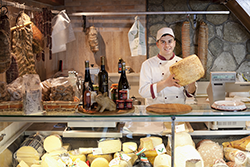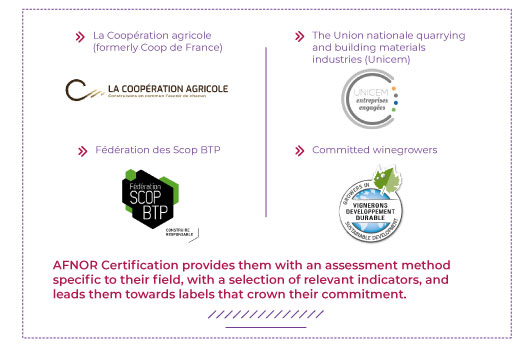
 A true international standard in sustainable development and CSR, the voluntary ISO 26000 standard sets out the guidelines for an approach that combines sustainable development and global performance. But although it is a universal matrix, offering a common approach to all types of players, public and private, all sizes of company, whatever their sector of activity, it can be adapted to suit specific needs.
A true international standard in sustainable development and CSR, the voluntary ISO 26000 standard sets out the guidelines for an approach that combines sustainable development and global performance. But although it is a universal matrix, offering a common approach to all types of players, public and private, all sizes of company, whatever their sector of activity, it can be adapted to suit specific needs.
The food industry even has its own ISO 26000 standard, ISO/TS 26030, published in February 2020. The document takes up the 7-question approach of ISO 26000, always in line with the United Nations Sustainable Development Goals (SDGs): organizational governance, human rights, labor relations and working conditions, environment, fair practices, consumer issues, communities and local development.
Sustainable development for every business
The AFNOR group offers tailor-made support to professional federations wishing to commit to a sustainable development approach specific to their sector of activity. AFNOR Certification is also supporting 9 trade federations in this direction, with the CSR platform: Coopération agricole (formerly Coop de France), Fédération des Scop BTP, Union nationale des industries de carrières et matériaux de construction (Unicem) and Vignerons engagés. AFNOR Certification provides them with an assessment method specific to their field, with a selection of relevant indicators, and leads them towards labels that crown their commitment.

With the help of the AFNOR group, the Jambon de Bayonne consortium, which brings together the entire industry (breeders, producers, slaughterers, manufacturers, cured meats producers), has developed its own CSR label. As all these businesses are interdependent, we needed a common response to environmental and social challenges… and to consumer expectations. The standards list a number of good practices to be followed, including local sourcing, a ban on antibiotics, and cameras in slaughterhouses, all of which guarantee the objectivity, and therefore the solidity, of the approach, for increasingly demanding customers.